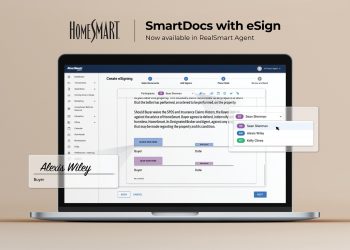By Jenni Mintz
RISMEDIA, August 12, 2008-(MCT)-Sometimes, it just seems easier to walk away. Tired of living in dread, a number of homeowners are mailing their keys instead of mortgage payments to their lenders.Experts say it’s the worst thing homeowners can do.
“It is a rising trend, unfortunately,” said Dustin Hobbs, a spokesman with the California Mortgage Brokers Association. “It’s a fairly new phenomenon.”
Surprisingly, not all of these homeowners are in trouble. Some are “perfectly capable” to continue making payments, said Michael Szakos, a Realtor with Re/Max Gold Coast Realtors. But in these uncertain times, people might want to reduce their costs by renting.
“It’s an untold story,” Szakos said.
Some homeowners might be current on their mortgages, but are tired of squeaking by every month while home values tumble.
Others are on the brink of ruin. A Moorpark woman who did not want to be identified got behind on her mortgage after losing her job and is facing foreclosure.
“I can understand why people walk,” she said, adding that she offered to turn in her key but the lender refused to take it.
She said she also tried to do a short sale and received four offers, but the prospective buyers eventually moved on because the bank took too long to review them. In spring 2007, she stopped making mortgage payments.
The single mother describes herself as a fighter and survivor. She’s sought help from the U.S. Department of Housing and Urban Development, Hope Now and several other organizations, but to no avail. Her home is scheduled to be auctioned at the end of this month.
Troubled homeowners often feel helpless, unsure of whom to call. Some anticipate turmoil when their adjustable-rate mortgage resets to a higher loan payment. If they owe more than what a house is worth, they won’t be able to refinance, said Mike Anderson, a real estate finance instructor with Ventura College.
Even for those who are upside down on their homes and need to refinance, there is hope. Anderson said they should warn their lender six months before their loan resets that they can make current payments, but are uncertain they can meet the higher costs when the loan resets. Homeowners should ask their lender what options are available. It’s important to call beforehand “because the process does take longer than five minutes,” Anderson said.
He noted that lenders didn’t know how to handle such calls a year ago. “Today, it’s a different story,” he added. “Everyone’s trying to do something about it.”
Some lenders say they are taking a proactive approach, contacting customers and discussing options to help them avoid foreclosure.
“Wells Fargo is not witnessing many walk-aways, in large part due to the contact we have with homeowners early in their delinquency cycle,” said Tom Swanson, retail regional sales manager for Wells Fargo Home Mortgage.
In 2006, 30% of Wells Fargo customers who went into foreclosure never contacted the company, Swanson said. About 3% of the 7.9 million real-estate backed loans Wells Fargo services are subprime adjustable-rate mortgages that have, or are expected to, reset by the end of 2008.
At this time, Wells Fargo can find solutions for 80 to 88% of these loans through a workout program, repaying the loan in full or managing the higher loan payment, he said.
Unfortunately, some borrowers are unaware of the programs that provide assistance, Hobbs said. Still, walking away is one of the most foolish things a homeowner can do, he added.
“If you mail keys instead of a payment, it’s basically a foreclosure,” said Hobbs, noting that it tarnishes a homeowner’s credit accordingly, worse than a short sale would.
Walking away is viewed as a foreclosure, which significantly drops a person’s credit score, said Maxine Sweet, vice president of public education at Experian.
“You don’t want to walk away,” she said.
There are smarter options, such as a short sale, in which the bank is willing to take less money than the balance owed on the property, she said. Or the owner can deed the property back to the lender to avoid foreclosure.
Sweet suggests that homeowners talk to their lender about how to close the account.
There is a caveat, Sweet said. People considering a short sale should ask their lenders how they handle the difference in what is owed and what is paid for the property, she said. Some lenders might ask a collection agency to collect the difference from the person trying to get out of the house.
Though it would still mean a hit to their credit, homeowners should try to do a deed in lieu of foreclosure instead of a short sale, Sweet said.
“You’ll get yourself out of the nightmare, because you won’t have a collection agency after you,” she said.
Whether homeowners see trouble down the road, real estate by nature is cyclical; it will pick back up eventually, Hobbs said.
It’s going to get worse before it gets better, said Anderson, because of all the adjustable-rate mortgages due to reset to higher payments in the next few years.
A lot of these loans weren’t subprime or Alt-A loans, Anderson said.
The question is how are adjustable-rate loans going to affect people. “There’s so much talk about it,” Anderson said. “There’s a lot more fear from a lot of people who shouldn’t need to have that fear.”
He’s talked to people who are in a good loan that they can continue paying, but are tempted to walk away and rent. He advises them to stay put.
“I don’t think it’s a smart thing to do,” Anderson said.
If people have failed to get a loan modified and are unable to make payments, Anderson said, it’s better for them to stay in the house and wait to be kicked out.
“If you’re not going to pay, then just don’t pay,” he said. “The same thing would happen, but at least you could live there for a while and save.”
Copyright © 2008, Ventura County Star, Calif.
Distributed by McClatchy-Tribune Information Services.










